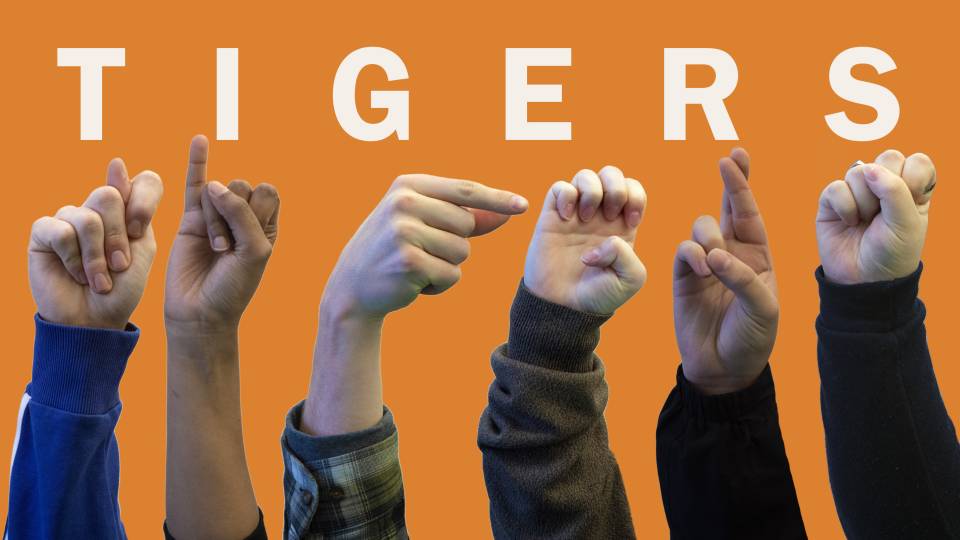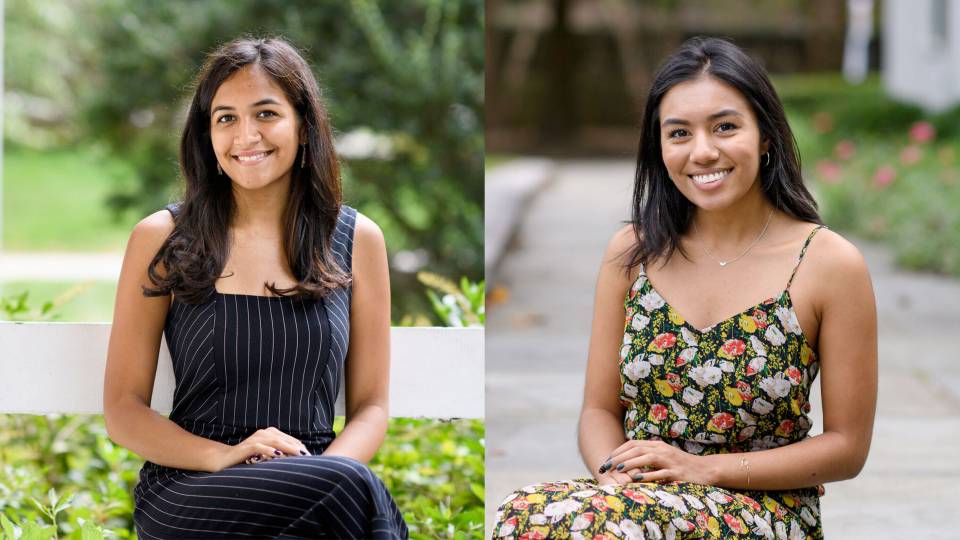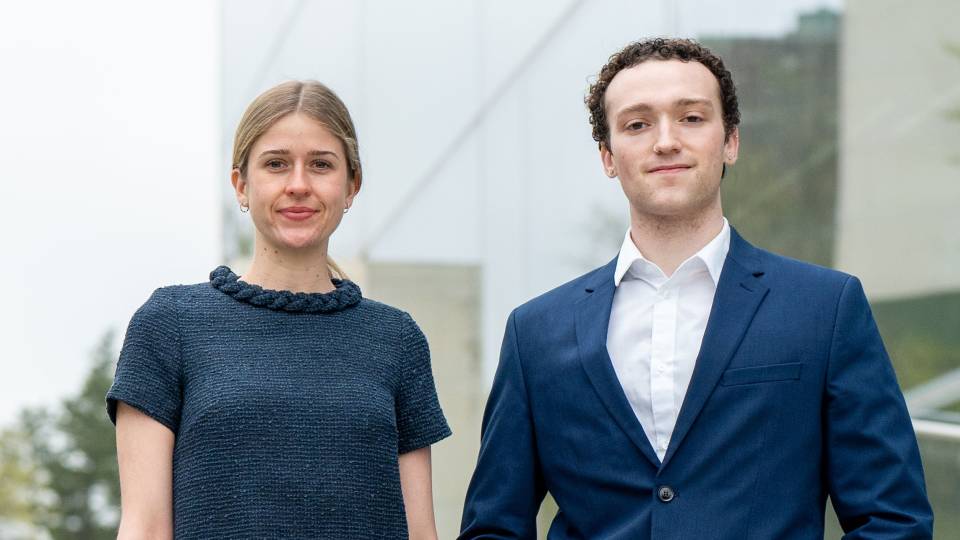Junior Colin Lualdi is a physics major at Princeton University, and he is Deaf.
Lualdi capitalizes the “D” in Deaf as a way of embracing the Deaf community, and he has welcomed his role as Princeton’s only Deaf student. By teaching sign language to his fellow students, establishing an American Sign Language (ASL) club and language table, and advocating for ASL-related classes in the curriculum, he has connected a community of people interested in ASL on campus.
In Lualdi’s first semester, he founded the Princeton University American Sign Language Club(Link is external), which holds events, advocates for credit and non-credit ASL instruction on campus, and connects with Deaf and hard-of-hearing students and alumni. In the Whitman College dining hall, students have organized a weekly ASL table, where they can practice signing over dinner.
This fall semester, the University’s linguistics program offered the course “Linguistics of American Sign Language”(Link is external) for the first time. The course was taught by Eileen Forestal, a lecturer in the Council of Humanities(Link is external) and the Program in Linguistics(Link is external) who is also Deaf. As the class is made up of students who are not fluent in sign language (except for Lualdi), the Office of Disability Services provided sign language interpreters. (The office also arranges interpreters for Lualdi’s classes and other activities.)
“I’m looking at the students as ambassadors for the Deaf community,” Forestal said. “ASL is a language, and they can help to promote that concept.”
Some students interested in ASL have family members or friends who are Deaf, and others want to learn it just like they would learn any other language.
“I think learning ASL at Princeton is completely independent of how many Deaf students there are at Princeton,” said senior Briana Freeman, a member and former officer of the ASL club. “I’m not learning Japanese and Korean to talk to fellow students here necessarily, though that is fun and … a great way to learn more.”





